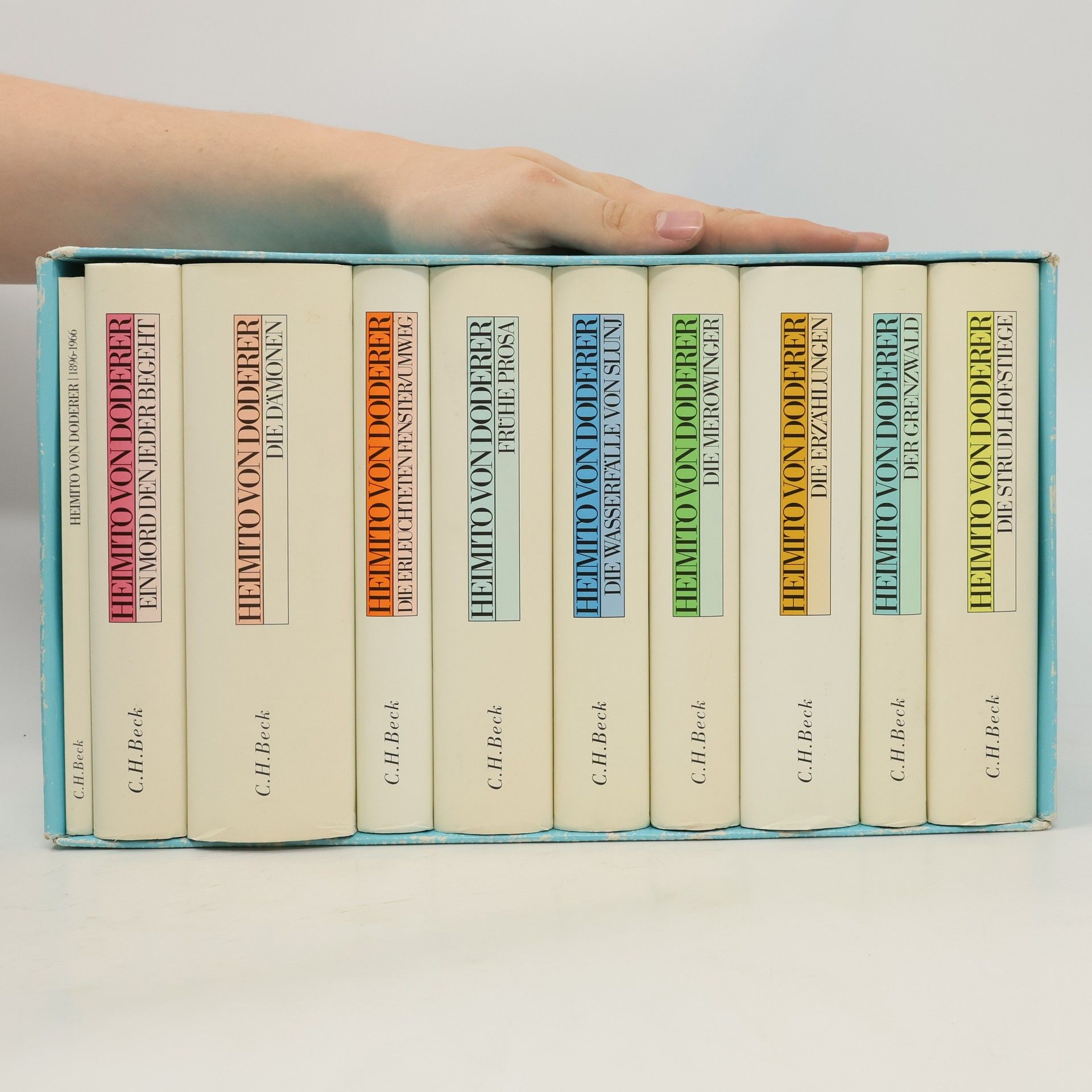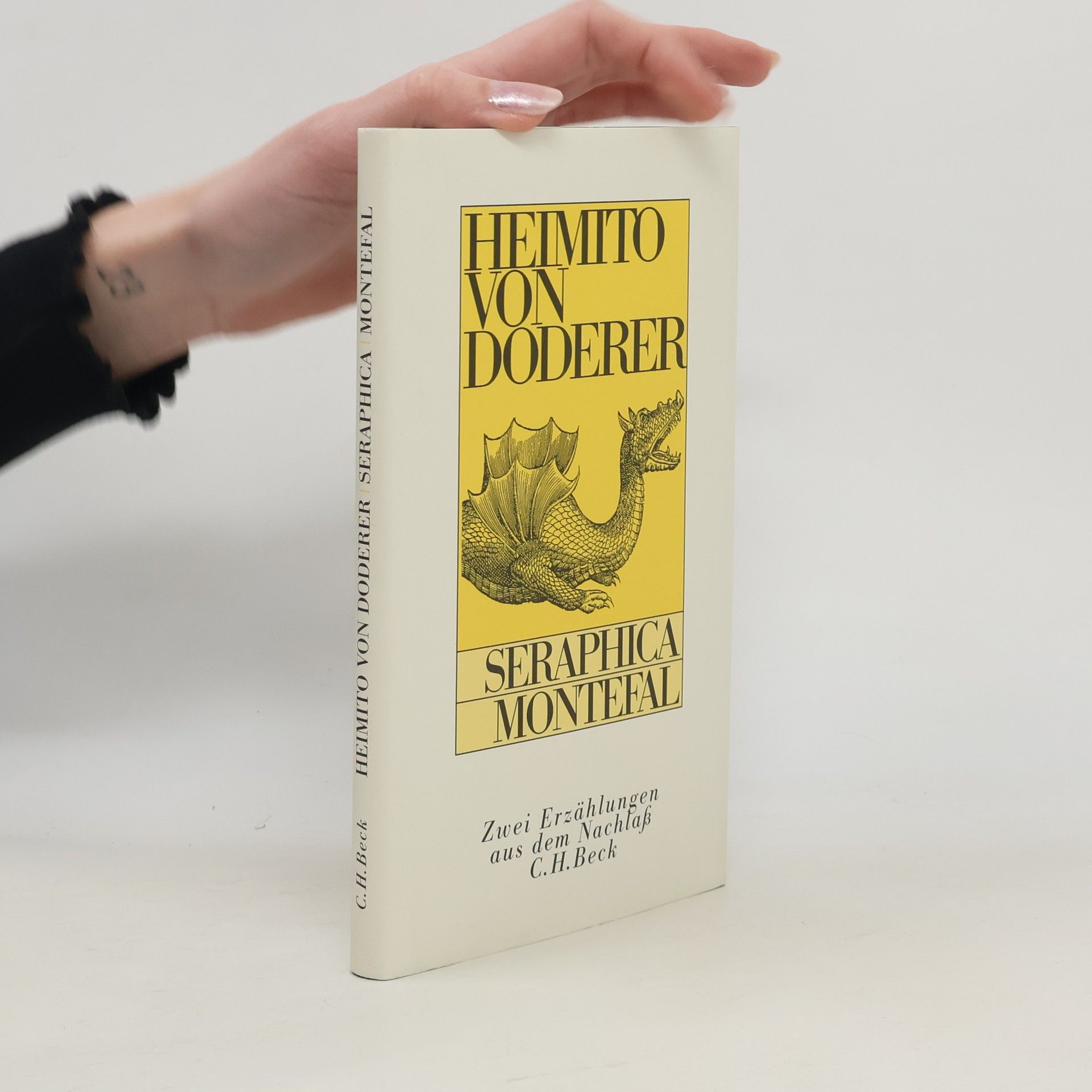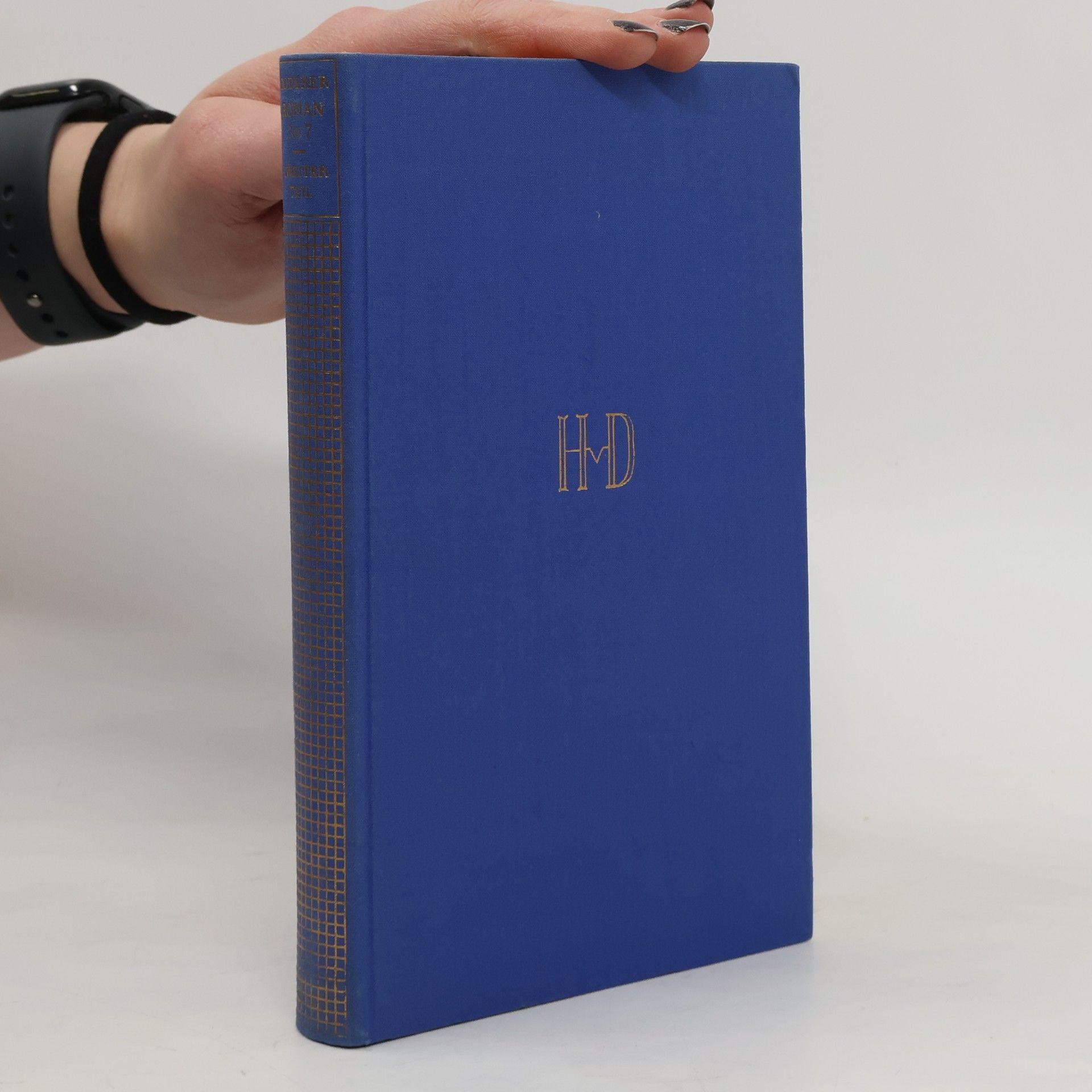Heimito von Doderer Livres
Heimito von Doderer, l'un des écrivains autrichiens les plus importants, a presque exclusivement centré son regard littéraire sur Vienne et son atmosphère particulière. Son œuvre explore les liens complexes entre les individus et la société, caractérisée par un style d'écriture riche et élaboré, ainsi que par une profonde perspicacité psychologique. Après son retour de captivité russe, où il passa plusieurs années, il entreprit des études d'histoire. L'écriture de von Doderer se distingue par sa portée épique et sa capacité à saisir l'esprit de son époque.



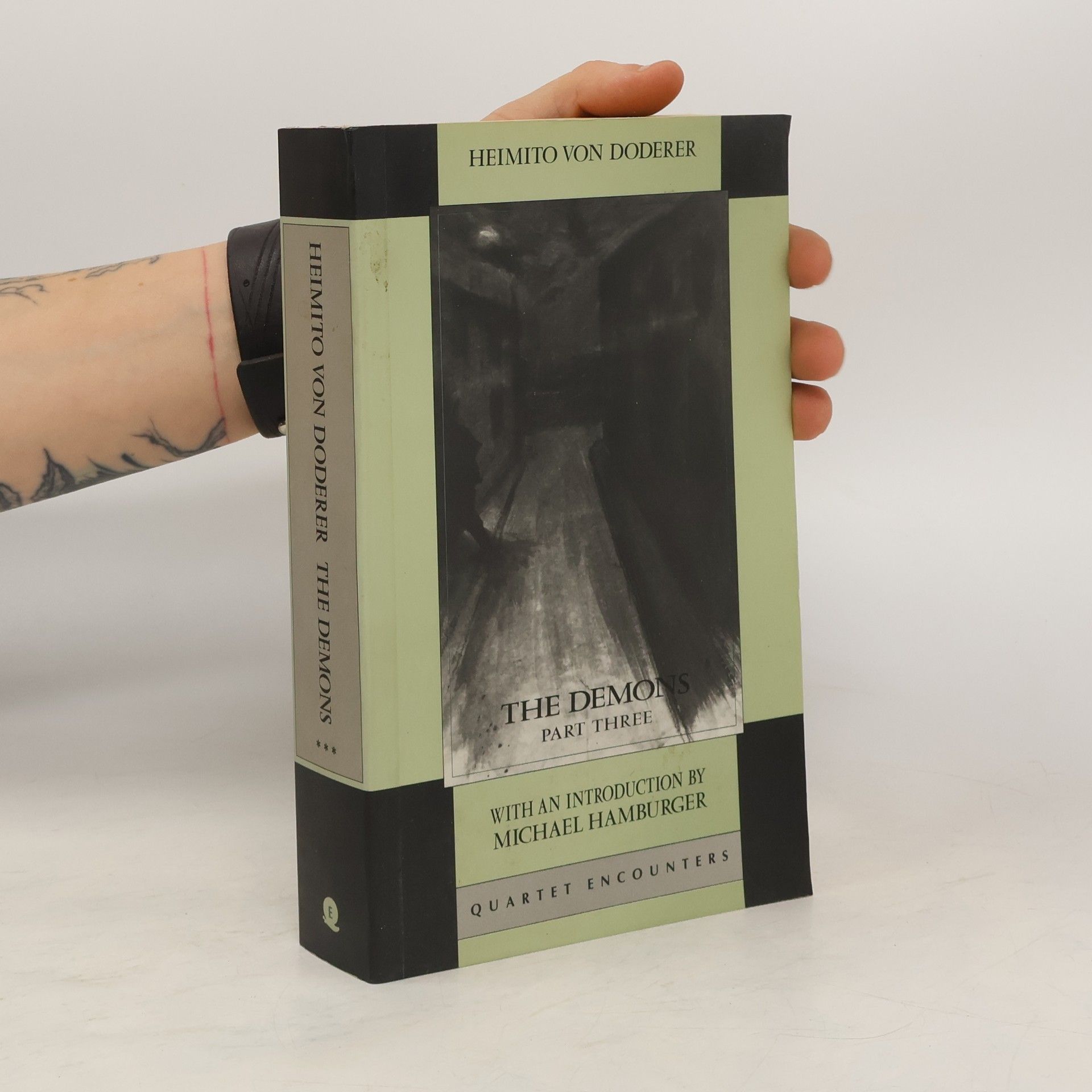

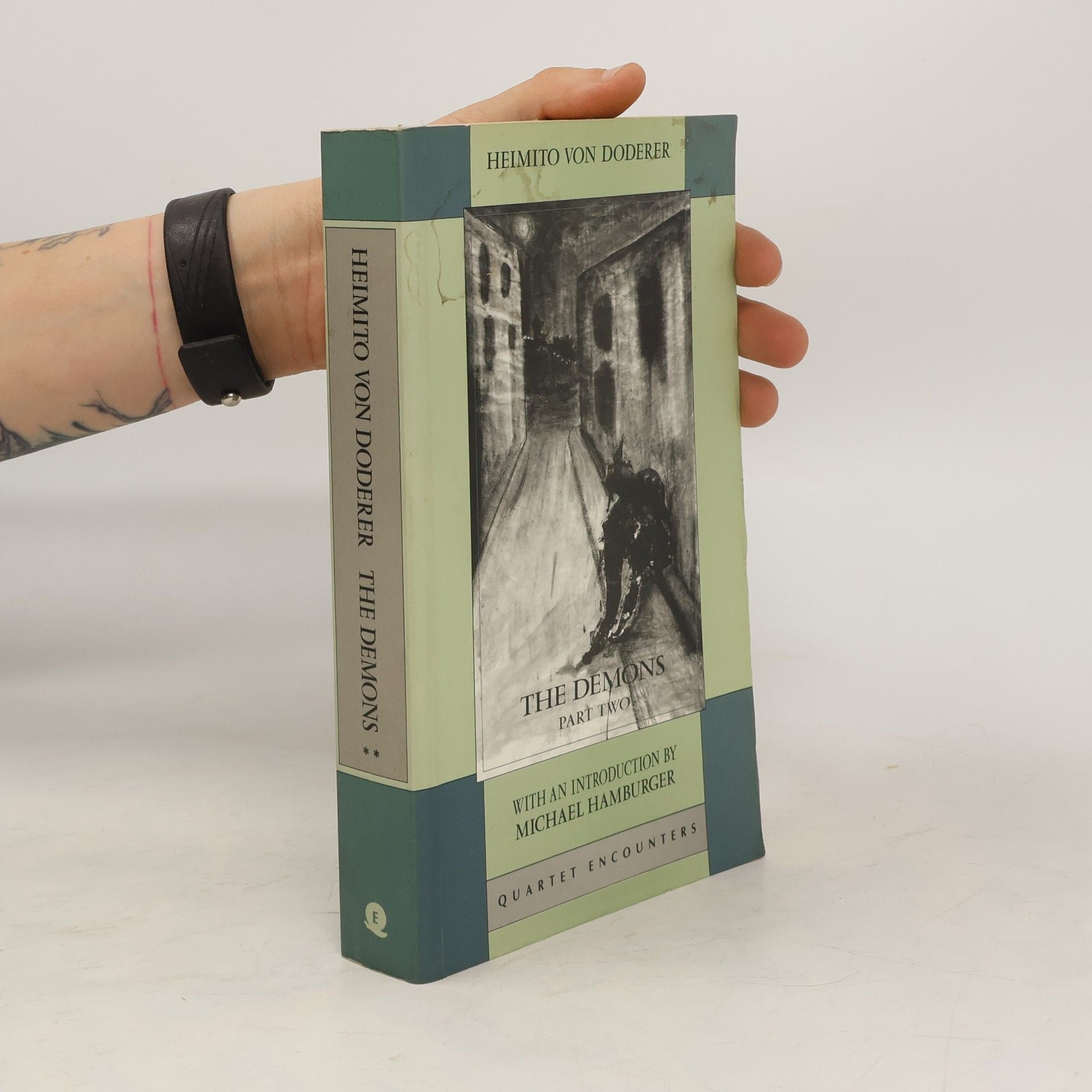
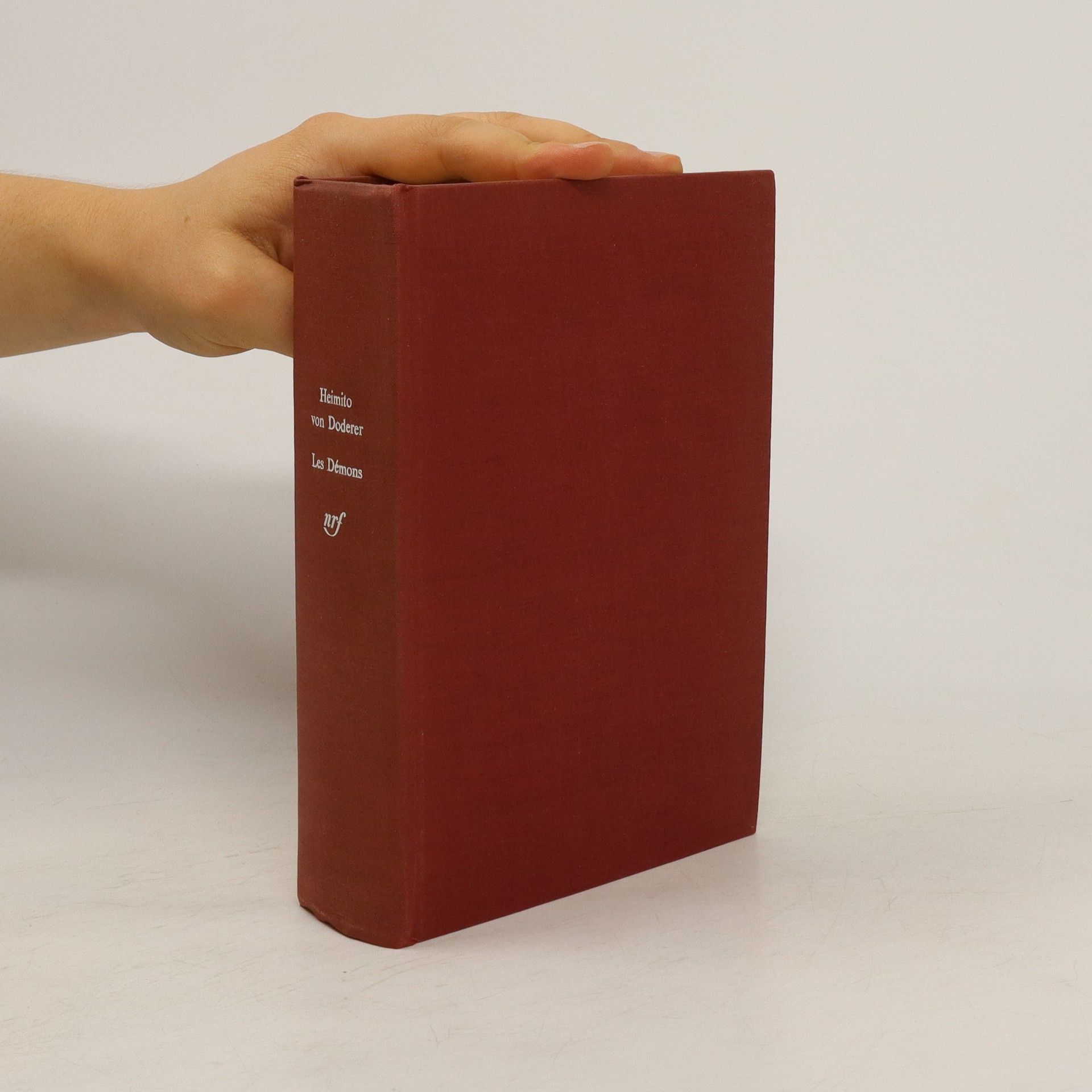
The Demons
- 379pages
- 14 heures de lecture
Heimito von Doderer was one of the twentieth century's most distinguished Austrian novelists. His finest novel is The Demons, a monumental work and itself the 'Götterdämmerung' as it were to earlier novels. The central preoccupation of this masterpiece is the decline of European civilization. He began work on it in 1931, after reading Dostoyevsky's The Devils. Symphonic in construction, it is a panoramic re-creation of Viennese society in all its strata, conjuring the depths as well as the heights of everything we might think of as Vienna. Doderer has Balzacian scope as well as owing much to Proust and Musil. His human comedy is drawn with a humour as vital when ironic as when satirical, and his baroque imagination is well served by his tireless linguistic ingenuity.
The Strudlhof Steps
- 864pages
- 31 heures de lecture
The first English translation of an essential Austrian novel about life in early-twentieth-century Vienna, as seen through a wide and varied cast of characters. The Strudlhof Steps is an unsurpassed portrait of Vienna in the early twentieth century, a vast novel crowded with characters ranging from an elegant, alcoholic Prussian aristocrat to an innocent ingenue to “respectable” shopkeepers and tireless sexual adventurers, bohemians, grifters, and honest working-class folk. The greatest character in the book, however, is Vienna, which Heimito von Doderer renders as distinctly as James Joyce does Dublin or Alfred Döblin does Berlin. Interweaving two time periods, 1908 to 1911 and 1923 to 1925, the novel takes the monumental eponymous outdoor double staircase as a governing metaphor for its characters’ intersecting and diverging fates. The Strudlhof Steps is an experimental tour de force with the suspense and surprise of a soap opera. Here Doderer illuminates the darkness of passing years with the dazzling extravagance that is uniquely his.
The Demons. Part Three
- 484pages
- 17 heures de lecture
Heimito von Doderer was one of the twentieth century's most distinguished Austrian novelists. His finest novel is The Demons, a monumental work and itself the 'Götterdämmerung' as it were to earlier novels. The central preoccupation of this masterpiece is the decline of European civilization. He began work on it in 1931, after reading Dostoyevsky's The Devils. Symphonic in construction, it is a panoramic re-creation of Viennese society in all its strata, conjuring the depths as well as the heights of everything we might think of as Vienna. Doderer has Balzacian scope as well as owing much to Proust and Musil. His human comedy is drawn with a humour as vital when ironic as when satirical, and his baroque imagination is well served by his tireless linguistic ingenuity.
Das Doderer-Buch
Eine Auswahl aus dem seinem Werk
» (...) Einige Erzählungen, einige Aufsätze und Reden – soweit ein Florilegium. Außerdem aber ganze sechsundzwanzig (von 371) Seiten aus dem Roman „Ein Mord, den jeder begeht“, vierunddreißig (von 909) aus dem Roman „Die Strudlhofstiege“, vierundsiebzig (von 1347) aus den „Dämonen“, sechsundsechzig (von 394) aus den „Wasserfällen von Slunj“. Der dies getan hat, nennt die Romane „Die Strudlhofstiege“ und „Die Dämonen“ Doderers „Zentralmassiv“. Glaubt er, das Gebirge ließe sich durch einen Maulwurfshügel hinreichend darstellen? «--Peter Pawlik, Die Zeit
Anlässlich des 100. Geburtstags von Heimito von Doderer veröffentlicht der Verlag C.H. Beck eine Jubiläumskassette mit seinem gesamten erzählerischen Werk. Ein Begleitbuch mit Bildern und Texten bietet eine Einführung in Doderers Leben und Werk und ermöglicht einen umfassenden Zugang zu seinen Romanen und Erzählungen.
Seraphica / Montefal
- 109pages
- 4 heures de lecture
Mit seinem Anfang der fünfziger Jahre erschienenen Roman Die Strudlhofstiege sicherte sich Heimito von Doderer einen Platz im Kanon der Weltliteratur. Dieser Band präsentiert erstmals zwei frühe Erzählungen aus dem Nachlaß des österreichischen Romanciers. Beide Texte haben Themen aus der mittelalterlichen Welt, für die der Autor ein besonderes Faible hatte. Seraphica schildert das Leben und Wirken des heiligen Franz von Assisi. Auf der Grundlage akribischer Quellenstudien hat Doderer eine ebenso interessante wie eigenwillige Franziskus-Biographie entworfen, die den Vergleich etwa mit Hermann Hesses bekannter Erzählung über den Heiligen aus Assisi nicht zu scheuen braucht. Montefal führt eine verkehrte höfische Ritterwelt vor: Obwohl sein Kampf mit dem Drachen im Wald von Montefal ihn hierzu berechtigen würde, verabsäumt es der spanische Ritter Ruy de Fanez, um die Herzogin Lidoine zu werben. Als ihm ein anderer Ritter das potentielle Liebesglück streitig macht, versinkt Herr Ruy in schwärzester Melancholie. Diese wunderbare Trouvaille ist der durchaus eigenständige Vorläufer eines Höhepunkts Dodererschen Schaffens, des unter Kennern hoch geschätzten Ritterromans Das letzte Abenteuer (1953).
"Der Grenzwald" war von Heimito von Doderer als zweiter "Satz" des nach dem Vorbild einer Symphonie in vier Sätzen aufgebauten "Romans No. 7" geplant. Die Einheit dieses vierteiligen Werkes sollte nicht im Inhalt, sondern allein in seinen Formelementen liegen. Wie im ersten "Satz", den "Wasserfällen von Slunj", tritt eine Figur weitgehend in den Mittelpunkt. Es ist der Oberleutnant Zienhammer, Durchschnittsmensch mit einem Schicksal, das in allen Kriegen, so aktuell ist wie in dem, den Heimito von Doderer schildert. Neben Zienhammer steht der Arzt Dr. Alfons Halfon im im Konflikt mit seinem Vater und auf der Suche nach den befremdlichen Todesumständen seiner Mutter. Obwohl "Der Grenzwald" Fragment geblieben ist, ist Doderers Technik, die Dinge als sie selbst wirken zu lassen, bereits durchschaubar; und der Raum, der durch das Motiv des "Grenzwaldes" geschaffen wird, verleiht dem Werk auch in der Gestalt die atmosphärische Dichte, die Doderers Romane stets ausgezeichnet hat.
Das Wien der zwanziger Jahre Einer der bedeutendsten Großstadtromane unseres Jahrhunderts. Im Wien der ausgehenden zwanziger Jahre werden Schicksale aus dem Großbürgertum und Adel, aus dem Arbeiter- und Intellektuellenmilieu zu einem schillernden gesellschaftlichen Gewebe verflochten.
